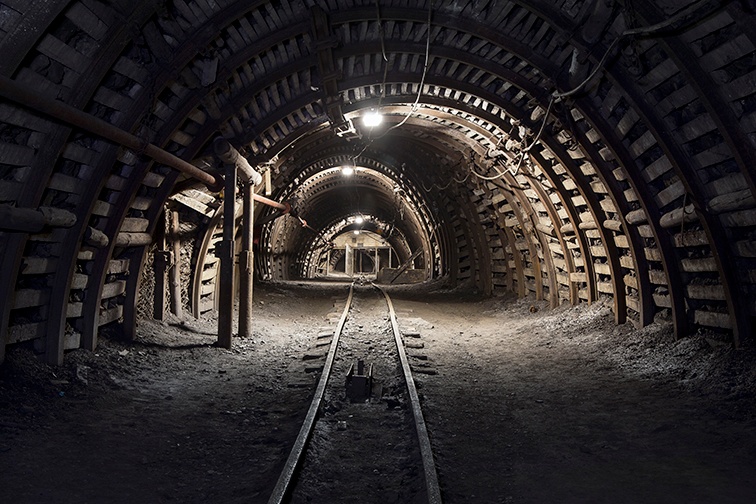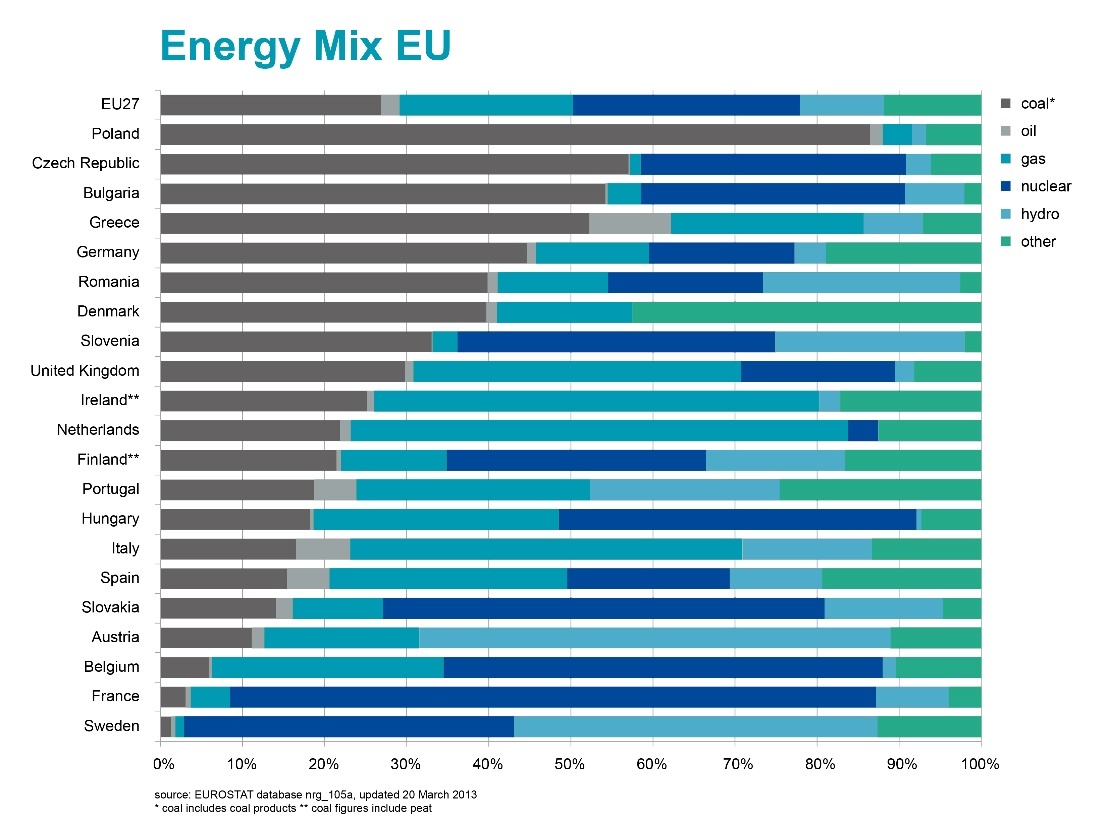By Bartosz Palusiński on 6/12/2015
Electricity prices all over Europe extended their downtrends in the last months. Since the first of September, German year ahead baseload prices dropped by -2,95%, France -6,61% and the UK by a hefty -10,24%. This bearishness didn’t spread to Poland. It’s year ahead baseload price increased by +4,52% in euro and +5,09% in the local currency, Zloty.
No European country produces as much electricity with coal as Poland. According to Eurostat a staggering 83% of all electricity produced in Poland in 2014 required the burning of coal. Moreover, 70% of Polish households still use coal as a heating fuel. Considering the high percentage of coal-fired power production, you would expect Polish power prices to have dropped in the last month. The price paid for coal in the international markets dropped by -12,72% since September. Unfortunately, the dynamics of energy pricing in Poland are determined by politics rather than economics.
 Illuminated, Underground Tunnel in the Minery (iStockphoto)
Illuminated, Underground Tunnel in the Minery (iStockphoto)
Due to the falling price of coal on the international markets, the Polish coal producers are in deep trouble. According to Paulina Pacula in an article published on euobserver.com on the 23rd of October, Polish coal mines have a deep efficiency problem, as they produce 648 tonnes of coal per worker per year, compared to 2.000 tonnes in the worst performing mines in the US. With 50% of its operating costs being labour costs, this low efficiency pushes the Polish coal mines deep into the red figures. Again according to Ms. Pacula, Poland’s Kompania Weglowa, Europe’s largest coal producer has negative cash reserves and it still operates with a cost of production below the international coal price. In the troubled coal mine in Brzeszce production costs exceed the market price by 265 Zloty per ton.
Using normal economic reason, everyone would call for a restructuring of this coal sector. Not so in Poland. Some 500.000 Polish voters are estimated to depend on coal production for their income. Their trade unions fiercely resist any attempts of reform. And Polish political parties – afraid of protesting miners – cater to their needs. Instead of pushing Polish coal mines to become more cost-efficient, they oblige power producers to merge with coal companies. Blending the loss-making coal with the revenues from its electrification should make up for the losses seems to be the reasoning. The previous more liberal-minded government back-tracked on its attempt at splitting off the least efficient coal mines. And the new government, dominated by the conservative Law and Justice party, seems even less willing to let economic laws determine its coal mine policy.
Poland pays a heavy price for its addiction to coal. The year ahead electricity price (on the 24th of November) stands at 39,09 euro per MWh, compared to Germany’s 29,29, Czech Republic’s 29,63 and Slovakia’s 32,93. These higher coal prices and the contrarian increasing trend of the last months is based on the market’s fears that obligations to buy coal at prices higher than the international market price will push up the cost of producing electricity in Poland. And there is obviously the environmental cost, Poland is one of Europe’s worst performers in terms of air quality. But here again, coal-addicted Poland is isolating itself within the EU by continuing to oppose climate policy ambitions.
Worst case, pushing power producers to acquire troubled coal producers could be the energy market equivalent of swallowing poison pills, bringing power producing companies on their knees. It could also stall the liberalization process. As one of Europe’s countries with the most rapid economic development, a development largely based on the growth of an energy-intensive industry, Poland should think about this. It is financial nonsense to pour money into a coal industry that, according to Ms. Pacula, contributes nothing at all to Poland’s GDP growth. It is even larger insanity to risk wrecking your all-important power production sector in an attempt to prop it up.

Feel free to leave a comment and share our blog posts on social media!
E&C is an energy procurement consultancy with an international team of energy experts that offer a unique blend of global capabilities and local expertise.
Our offices in Europe, the US and Australia serve more than 300 clients from South-Africa to Norway and Peru to Australia that have an annual spend between 1.5 million and 1.5 billion dollars.
E&C Consultants HQ
Spinnerijkaai 43
8500 Kortrijk
BELGIUM
+32 56 25 24 25
info@eecc.eu
